Jagdish N. Sheth
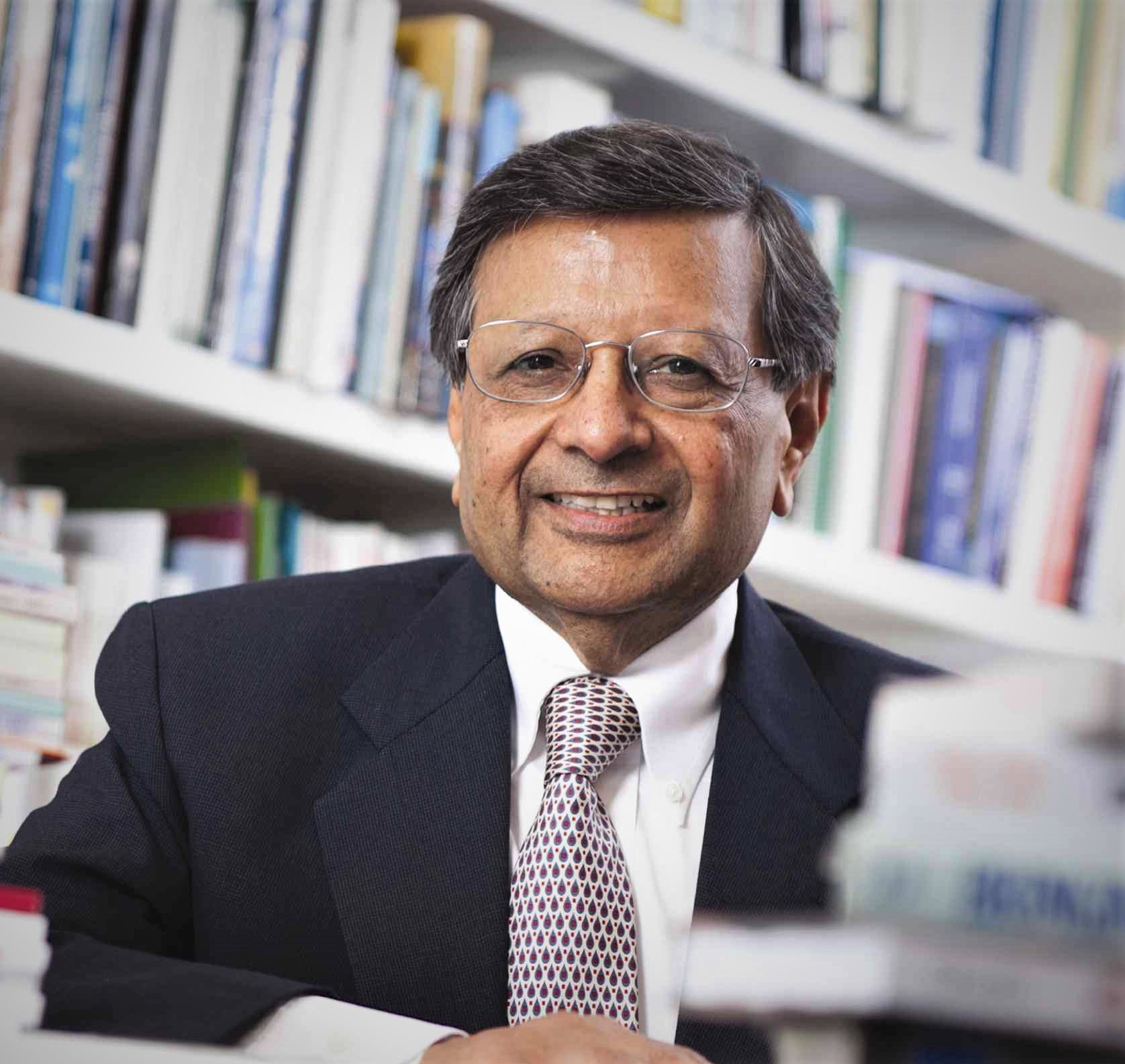
Jagdish N. Sheth, the Charles H. Kellstadt Professor of Business at Goizueta Business School, has been a cornerstone of Emory’s academic community since 1991. Drawn to the university by its welcoming campus, vibrant metropolitan culture, and the strong sense of belonging it fosters, Sheth believes that Emory’s legacy of excellence is worth supporting.
Sheth’s personal journey—from his birth in Burma to seeking refuge in India—has guided his understanding of the importance of belonging and community. This experience drives his commitment to fostering environments where others can feel supported and connected, just as he has throughout his time at Emory.
As a proud supporter of Emory’s 2O36 campaign, Sheth is passionate about how faculty engagement can shape Emory’s future. He encourages his colleagues to give back to their alma maters, personal passions, and Emory—where they’ve made their professional home. “I want to encourage my colleagues to give back to Emory. Our teaching experience influences who we are, and we should actively work to make it better for everyone,” he said.
For Sheth, giving back goes beyond financial contributions. He believes that time, talent, and treasure are equally valuable. Whether it’s delivering a guest lecture, attending events like Homecoming, or engaging with students and alumni, he highlights the many ways faculty members can stay involved. “Faculty members are naturally curious and remain connected to Emory long after they retire,” he said. “There is a natural bond between educators and the institution.”
Through his commitment to 2O36, Sheth hopes to inspire others to join him in strengthening Emory’s legacy. By giving back in ways that resonate personally, he reminds us of the power of community and shared purpose.
Past Volunteer Spotlights
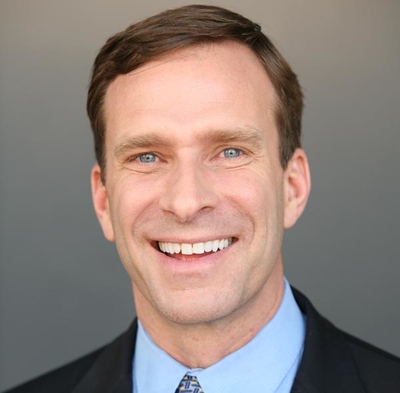
Longtime Emory supporter Charles Scott 82C 86M has an unconventional college admission story, and it’s all because he didn’t do his homework.
Scott attributes his introduction to Emory to a missed vocabulary assignment in high school. The teacher walked from desk to desk checking each student’s workbook, and she was headed his way. Suddenly an announcement came over the intercom: A representative from Emory was visiting the school, and anyone interested could leave class and go to the front office.
“I had committed to another college, but I saw this as an opportunity to get out of class,” Scott recalled. “I went to learn more about Emory, and the decision changed my life.”
Emory turned out to be the perfect fit. He had a passion for music and a budding interest in psychiatry and the university allowed him to explore both. “A liberal arts education exposed me to the performing arts while supporting my pre-med coursework,” he said.
But his Bobby Jones Scholarship had the most profound impact. The scholarship provided financial support and enabled him to study at the University of St Andrews in Scotland. “My time at St Andrews was incredible. I made lifelong friends and frequently reconnect with other Bobby Jones Scholar alumni.”
After graduating from medical school at Emory and serving in the military, Scott has a successful career as a forensic psychiatrist. And he never forgets the power of philanthropy. Having received several scholarships himself, Scott credits the generosity of donors with changing his life. “Without those scholarships, my path might have looked very different,” he reflected.
That’s why he was thrilled to join the 2O36 Campaign Council. “Emory was so life-changing for me. I know that by supporting 2O36 as a donor and a volunteer, I can help talented students who would not otherwise be able to attend Emory to have experiences that could change their lives too.”
Scott’s commitment to giving back doesn’t stop there. He has also made a planned gift to support future Bobby Jones Scholars, ensuring the program that transformed his own journey will continue to open doors for others. “It’s my way of helping others access the same incredible opportunities I was fortunate to have.”
Originally from Delaware, Mary Williams 82C was introduced to Emory through a family friend. When she arrived, she had a plan: study psychology and embrace Emory as her home for the next four years. It was “love at first sight!”
In her first week at Emory, she met two other students from Delaware, and after joining a sorority, her community of friends expanded. “I had no interest in joining a sorority, but I’m so glad I changed my mind,” Williams remembered. She is still close with her sorority sisters and meets up with them for occasional reunions.
Williams credits Emory with helping her find her way through experiential learning, leadership opportunities, and a strong sense of community.
Inspired by her older brother whose career was in the rapidly growing oil and gas industry, Williams pursued obtaining a degree in geology. In addition to lectures and labs, Williams completed the required six-week Geology Field Camp course during the summer of 1981 in Ringgold, Georgia.
“I learned so much from geology classes and labs, but it was through fieldwork with other students that validated the importance of teamwork - a skill that helped me to succeed in my career and is still important today,” she said.
After graduating, Williams started her career as a geoscientist in Oklahoma before moving to Houston, Texas. She stayed highly engaged with Emory, serving as president of the Houston chapter of the Emory Alumni Association from 1990 to 1995. During her tenure, the Houston chapter continued to grow and now has 1,000+ members. From 2005 to 2011, Williams served on the Emory Alumni Board and as an active alumna, she spent numerous hours interviewing perspective student from Houston. Her commitment to preserving and furthering the Emory legacy for students, faculty and programs remains very important to her.
As a member of the 2O36 campaign leadership, she hopes more students will have an Emory experience like she had. And she’s proud to be a part of helping students flourish even 800 miles from campus.
`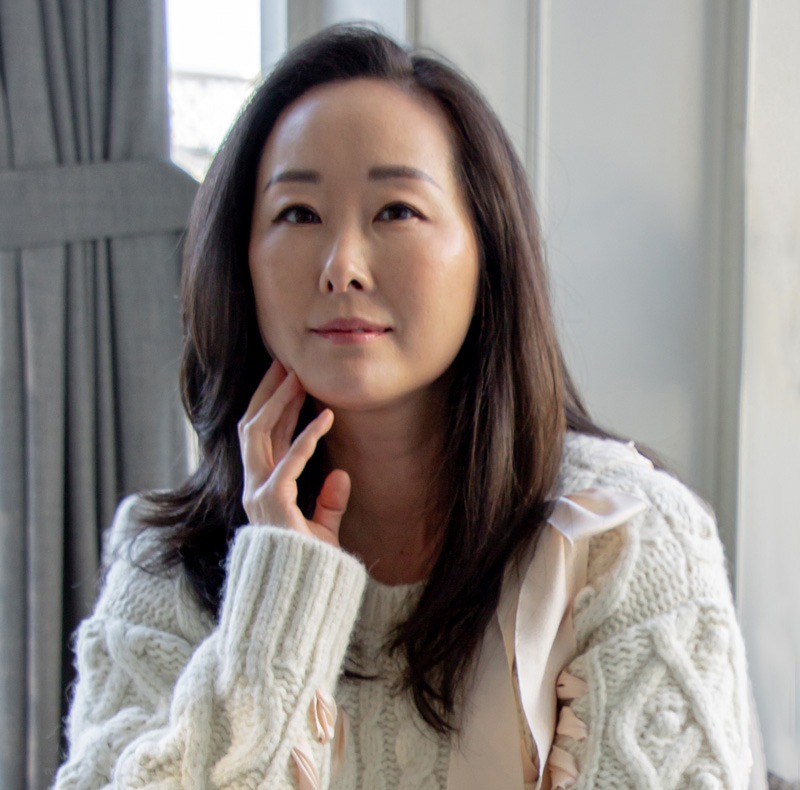
Emily Park 04C was excited for a new start in a larger, more diverse community at Emory. During first-year orientation, Park quickly found community through Emory’s Korean Undergraduate Student Association (KUSA). “When I arrived at Emory, that was the first time I experienced that much diversity,” Park says. “Before the first day of classes, I already knew I belonged here. Through KUSA, I saw many versions of myself on campus.”
That sense of belonging and community continued throughout her time on campus and after graduation. Many of the friendships she formed during orientation week are still going strong today. Beyond these connections, Park says she left Emory with many skills and qualities that prepared her for success. Much of what she took with her wasn’t from textbooks. Rather the entire experience—encouragement from professors to ask questions, experiential learning opportunities, and conversations with her peers—built her self-confidence. She says, “I learned how to be curious. I knew no matter what curveballs were thrown at me, I had the skills to work through it.”
That’s why the Student Flourishing initiative and the opportunity to play a leadership role in the 2O36 campaign resonate so much with Park. She wants more students to have the experience she had as a student. And she’s making it happen through her philanthropy. The Park Family Scholarship is helping children of church clergy like her find their place at Emory. As a scholarship recipient herself, Park knows firsthand how life-changing financial assistance can be.
Inspired by a recent trip to campus when she sat in on a political science class, Park has also initiated an endowed professorship at Emory with her husband, John. While listening in on a class discussion, Park came to a realization: Through discussions and unpacking information with students, Emory professors were ultimately improving the world, one classroom at a time. And her family wanted to be involved. The Dr. Walter Park Professorship honors her father-in-law—a former journalist and national assemblyman in South Korea.
When asked why she gives to Emory’s 2O36 campaign, she says, “My giving is truly personal. This professorship is a thank you to Emory from my family.”
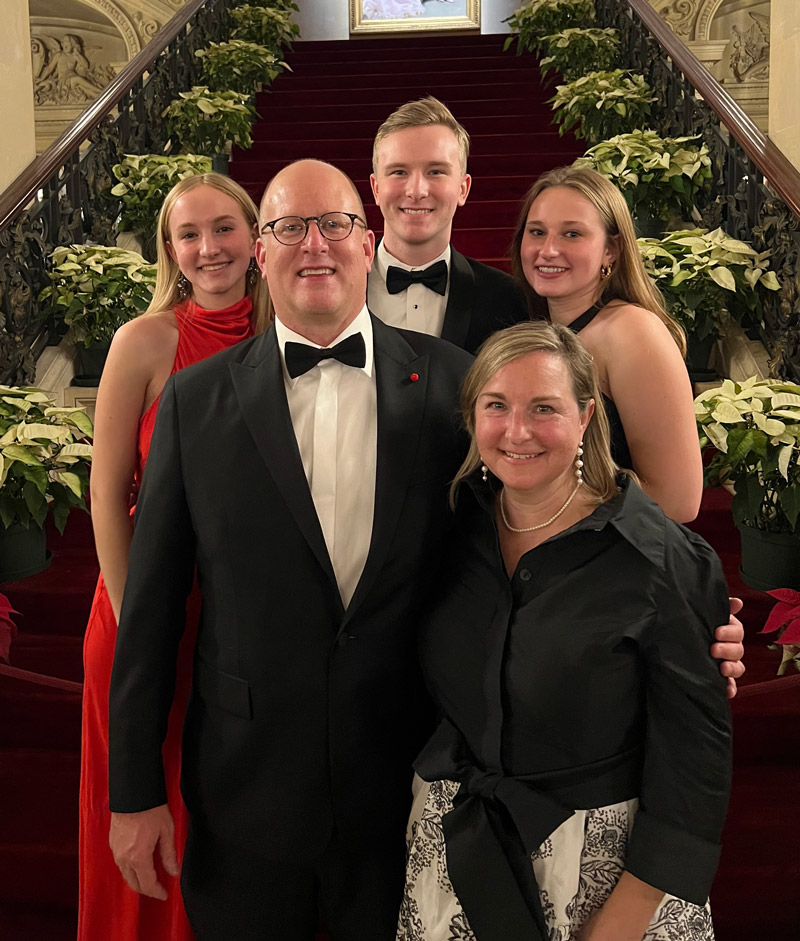
For Ed Cloaninger 91Ox 93C, Emory has provided a lifetime of opportunities and happiness. After graduating from high school in Macon, Georgia, he attended Oxford College and Emory University. While at Oxford, he fully embraced the social as well as academic offerings.
“I had the opportunity to serve as a club president for 40+ individuals as a sophomore in college. It is rare to have that opportunity at such a young age, and it helped me to better understand how to lead and build consensus,” he says.
Cloaninger has carried the lessons he learned at Oxford throughout his life. “Most of my classes were on the smaller side, with just 15 to 25 students. There was nowhere to hide! My most enjoyable classes were taught by professors who challenged you to see both sides of a position, often requiring you to argue both for and against that same position.”
He believes the ability to see both sides of an argument is a valuable skill that is missing in today’s public discourse. “While you may fundamentally disagree with others, it’s important to understand the basis of their beliefs to see if you can understand their motivations and reach common ground.”
Cloaninger firmly believes that the leadership and academic opportunities at Emory helped prepare him for his role within Deloitte, where he oversees the East Coast for International Tax and works with teams from around the globe on a daily basis. “My experiences at Emory taught me to search for shared goals and aligned values. That’s an invaluable skill when you’re trying to guide teams and clients with competing priorities and perspectives.”
He also credits Emory with a more personal opportunity: He and his wife, Deb, met while she was working at Emory. “If it wasn’t for Emory, we’d have never known each other!”
Cloaninger is excited to support and play a leadership role in the 2O36 Campaign, particularly when it comes to helping students flourish. “I want other bright and talented students to have the same experiences and opportunities that I did.”
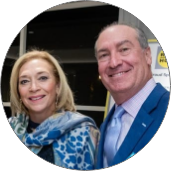
When Lisette and Hank Siegel were asked to join the Campaign Leadership Council for 2O36, it wasn’t a tough sell. For more than 40 years, Emory has held a special place in their hearts. After all, it’s where they first met.
Emory was Lisette’s top choice, but she was a first-generation college student, so cost was a concern. Thankfully, a modest scholarship made Emory financially competitive with the state schools, giving her the opportunity to attend.
Hank had grown up in Bucks County, Pennsylvania and was eager to experience life in other parts of the country. Atlanta made an impression.
“Atlanta is a world-class city. Then you visit Emory, where you find this amazing research institution, an incredible museum, and the opportunity to explore theology, philosophy, and business. Emory promised, and delivered, such a rich experience for us both,” he said.
Lisette and Hank give to scholarships so others can have the same kinds of experiences that they, their son, Andrew 10C, and their niece, Emily 18C, have had at Emory—regardless of their financial circumstances. And as regional campaign leaders in Florida and New Jersey, they’re bringing more supporters into the fold.
“We’ve been able to make so many connections just by sharing our personal story,” Lisette said. “The scholarship I received changed the trajectory of my life forever, and when people hear about that, they start to think about why Emory matters to them. Maybe it’s medical research that has impacted their lives, or just the potential for a newly admitted student to find their purpose and become the next great…something! I think alumni—and other members of the Emory community—leave regional events feeling inspired and confident that Emory is helping shape a better world. I get energized every time I go!”
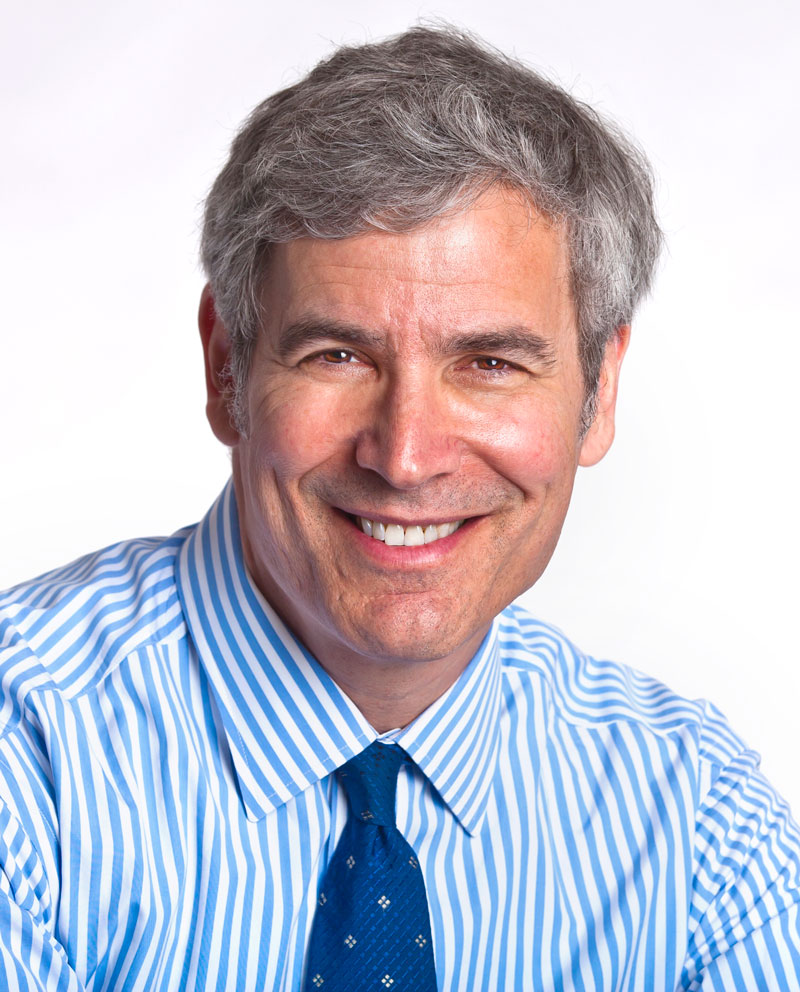
Whether or not he realized it, Rob Friedman had always been on a path toward Emory. As a high school student in New Jersey in the late 70s, he applied for admission at his father’s behest. He was waitlisted (and jokes he’d never get that close today). In the early 80s, Emory Healthcare helped save his father’s life through a complicated triple-bypass surgery, which was rare at the time.
As Friedman worked to determine his estate plans in his early 50s, he wanted to support a cause that could generate the highest societal good. He suspected Emory School of Medicine would fit the bill. After touring the School of Medicine and visiting with its leadership, Friedman made up his mind.
“I knew before the plane landed on my flight home. I was so impressed by the incredible brainpower at the medical school, their commitment to continuous improvement, their passion for their goals, and their humanity,” he recounted.
Friedman subsequently endowed a scholarship to provide financial assistance for medical students pursuing a career in primary care—a need throughout the country. Still concerned about the debt load for medical students, he also volunteered to support the School of Medicine’s financial workshop for fourth-year students. His symposium on Warren Buffett’s intrinsic-value investment principles was a hit with students and a great experience for Friedman.
Recently, he has expanded his philanthropic giving to support Emory’s new artificial intelligence (AI) health institute, EmPAtHi, helmed by Anant Madabhushi, PhD. “I am particularly excited by Professor Madabhushi’s vision to innovate, deploy and translate AI technologies in medicine and health within the Emory healthcare ecosystem, while at the same time positively impacting health disparities with these powerful technologies.”
“The potential of this work is limitless,” Friedman continues. “Most insidious diseases are incredibly complex, but with AI, we can combine enormous amounts of patient data with powerful computing power to develop truly individualized medical treatment. With this new capacity, we have a chance to come up with less toxic treatments and even outright cures. Some of the worst diseases—Parkinson’s, Alzheimer’s, heart disease, cancer—could become things of the past.
Friedman’s enthusiasm and optimism for a brighter future in health made him a natural choice to co-chair the School of Medicine’s 2O36 campaign efforts.
“Not only do I want to expand my personal philanthropic support for the School of Medicine, but I want to connect more potential benefactors with this work,” he says. “And while donations are essential, I’m also looking for people who can inspire. We’re trying to do extraordinary things through 2O36, especially when it comes to cancer and brain health. So many of Emory’s alumni are very accomplished, with tremendous life experiences. They have a lot to offer. Let’s tap into the full potential of their support.”
His advice for fellow campaign volunteers? Keep your message simple and don’t be afraid of making an ask. “Emory has big goals that require lots of funding. We have to be transparent. No donation is too modest. Every gift adds up to fuel this great mission.”
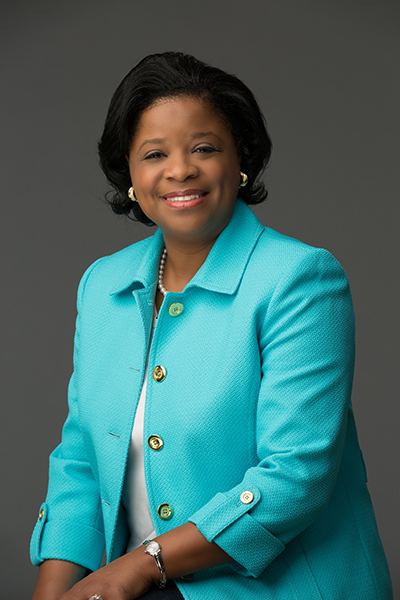
Shantella Carr Cooper 89C 95B understands that world-changing service begins in Emory classrooms, inside the hearts and minds of students.
“Our outstanding faculty and staff have created global leaders who challenge the status quo and are creative problem solvers in the world,” she says. “Emory graduates bring great talent to corporate, nonprofit, and civic organizations.”
Leadership and service are threaded into Cooper’s life, including her career. She is the founder and chief executive officer of Journey Forward Strategies, LLC, a solutions-focused consulting firm specializing in leadership development and organization effectiveness for Fortune 500 corporations, small private companies, and the not-for-profit sector. She has served in leadership roles for Lockheed Martin, Atlanta Committee for Progress, and WestRock.
At Emory, Cooper held several leadership roles before joining the Board of Trustees and the Campaign Leadership Council for 2O36. “I wanted to be a part of the team focused on shaping the future of an entity that I love!”
Student flourishing, a core investment area of 2O36, is one of her passions. By reimagining and connecting Emory’s curriculum, extracurricular activities, and residential and campus life, student flourishing creates an experience that embraces the whole student. What’s more, this initiative prepares Emory graduates to address racial and social justice, which is another key focus of 2O36, Cooper says.
“The added investment of preparing our students to participate in the world will create future leaders who are adept at inquiry instead of judgment,” she explains, “and who recognize our human connectedness.”
Anyone can contribute to the 2O36 campaign, Cooper says, whether they’re reaching out to fellow alumni to encourage them to give back, inviting others to tell stories of how Emory improved their lives, or sharing information about 2O36 with family and friends. She believes the ambitious goals of the campaign—including real-world outcomes—are achievable because of Emory’s past performance.
“We have demonstrated our ability to save lives and improve quality of life through our culture of innovation and research. We’ve been on the world’s stage and have humbly performed with excellence,” she says. “2O36 will expand our reach, further our thought leadership and innovation in the areas where we excel, and position us for the future.”